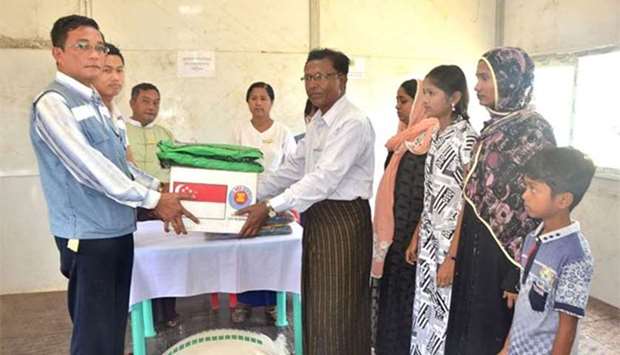Myanmar's government announced it repatriated the first family of Rohingya refugees over the weekend, but on Sunday Bangladesh described the action as being of little importance.
Five family members among the 700,000 Rohingya Muslims who fled Myanmar after a brutal military crackdown was launched last year - referred to as ethnic cleansing by the UN - returned from the border region into Myanmar on Saturday.
Myanmar and Bangladesh inked a deal in November to begin repatriations. Officials say logistical hurdles, including verifying identities and building accommodations, have held up the process.
The United Nations and human rights groups have expressed scepticism over the agreement, saying Rohingya returns should be voluntary, safe and to their place of origin.
While Myanmar hailed the family's return, officials in Bangladesh declined to call it an official "repatriation" as the family used to live in a camp on the "zero line" border between the nations.
"The family returned to their home from a camp set up on the zero line of the border. The camp is located on the Myanmar side of the border," said Abul Kalam, chief of the refugee relief and rehabilitation commission in Bangladesh.
Nearly 6,000 Rohingya Muslims have been stranded at the camp in "no-man's land" since the violence began in Rakhine state in August.
These people are not covered under the agreement Bangladesh and Myanmar signed, Kalam said. Still, he described the move as a "positive sign" before the formal repatriation process begins.

A Myanmar immigration official hands over identification document to a Rohingya family at Taungpyoletwei town repatriation camp in Maungdaw near Bangladesh border.
